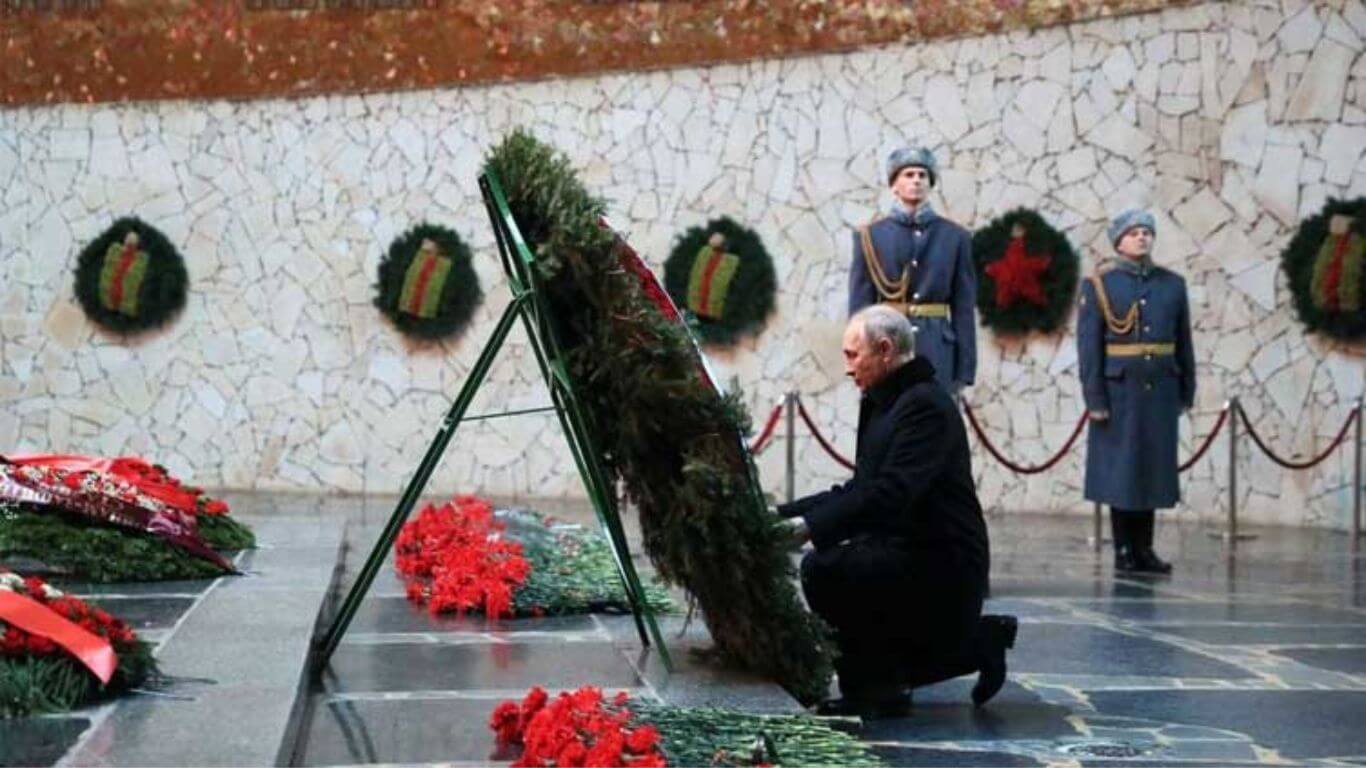
Irina Zolotoreva, a 61-year-old local who said that some of her ancestors had fought at Stalingrad, saw a comparison to Ukraine.
Putin visited the city’s biggest monument complex and paid his respects to those who lost their lives in the fight by placing flowers on the tomb of the Soviet marshal who oversaw the defense of Stalingrad.
The memorial service was held as Moscow attempted to escalate its military campaign in Ukraine in the face of vehement opposition.
Thousands of spectators lined the streets of Volgograd to see the triumph parade as planes flew overhead and tanks and armored vehicles from both modern and World War Two passed by.
The Russian forces in Ukraine use the letter “V” as a symbol, and some contemporary vehicles have it painted on them.
“For justice and freedom, our nation fights. 1942 saw our victory, which serves as an example for the current generation. Whatever happens, I believe we will win once more.”
In Russia, where the government has long portrayed the triumph at Stalingrad as an enduring emblem of selfless patriotism and heroic fortitude, paying tribute to those who delivered it is considered holy. This victory is widely seen as a turning point in the war.
Since Putin pushed tens of thousands of soldiers into Ukraine in February of last year, Russian officials have compared the conflict with the Nazis and World War Two.
Ukraine dismisses these comparisons and accuses Russia of waging an imperial conquest war despite having experienced destruction at the hands of Hitler’s armies while it was a part of the Soviet Union.
The main monument complex honoring the city’s defenders, which is situated on a hill overlooking the River Volga and has a massive statue of a woman brandishing a massive sword named The Motherland Calls, serves as the focal point for commemorating the World War Two victory.
The 1942–1943 conflict was terrible, leaving Josef Stalin’s home city in ruins and causing an estimated 2 million casualties.
A new bust of Stalin and two other statues, including those of the Soviet generals Georgy Zhukov and Alexander Vasilyevsky, were unveiled on Wednesday in Volgograd.
Stalin had the industrial city of Tsaritsyn renamed in his honor in 1925, but his legacy was no longer favored eight years later, in 1961, and Volgograd was created.
Despite Stalin’s record of presiding over a political purge that killed hundreds of thousands of people and a famine that claimed millions of lives, Russian politicians and school textbooks have recently emphasized his accomplishments as a wartime leader who made the Soviet Union a superpower.








